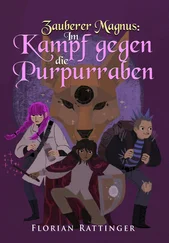Sylvie Germain - Magnus
Здесь есть возможность читать онлайн «Sylvie Germain - Magnus» весь текст электронной книги совершенно бесплатно (целиком полную версию без сокращений). В некоторых случаях можно слушать аудио, скачать через торрент в формате fb2 и присутствует краткое содержание. Год выпуска: 2008, Издательство: Dedalus Ltd, Жанр: Современная проза, на английском языке. Описание произведения, (предисловие) а так же отзывы посетителей доступны на портале библиотеки ЛибКат.
- Название:Magnus
- Автор:
- Издательство:Dedalus Ltd
- Жанр:
- Год:2008
- ISBN:нет данных
- Рейтинг книги:3 / 5. Голосов: 1
-
Избранное:Добавить в избранное
- Отзывы:
-
Ваша оценка:
- 60
- 1
- 2
- 3
- 4
- 5
Magnus: краткое содержание, описание и аннотация
Предлагаем к чтению аннотацию, описание, краткое содержание или предисловие (зависит от того, что написал сам автор книги «Magnus»). Если вы не нашли необходимую информацию о книге — напишите в комментариях, мы постараемся отыскать её.
Magnus — читать онлайн бесплатно полную книгу (весь текст) целиком
Ниже представлен текст книги, разбитый по страницам. Система сохранения места последней прочитанной страницы, позволяет с удобством читать онлайн бесплатно книгу «Magnus», без необходимости каждый раз заново искать на чём Вы остановились. Поставьте закладку, и сможете в любой момент перейти на страницу, на которой закончили чтение.
Интервал:
Закладка:
That is when he develops an obsession with colours and dreams of becoming a painter, though he has nothing but a few pathetic chalks and crayons with which he scribbles on bits of cardboard, for want of better materials. The results are so disappointing he soon abandons these attempts at drawing and contents himself with waiting for the eruption, here or there, of those splashes of virulent colour that throw him into a state of turmoil he dreads as much as he longs for.
Note
Dunkeltal, Clemens (born 13/04/1904): Obersturmführer in the SS.
Doctor of medicine. Served as camp doctor successively at KL Dachau, Sachsenhausen, Gross-Rosen, and Bergen-Belsen.
He made the selections of the deportees, sending the sick and the weakest to the gas chambers; personally took direct part in the extermination of numerous prisoners by administering phenol through an injection to the heart.
Sentenced in absentia to life imprisonment, he is being sought in Central America, where he is suspected of having managed to escape thanks to the support of the clandestine Nazi organization ODESSA.
Fragment 7
The days drag by, slowly, tediously. Augusta Keller counts them off in silence, counts them and recounts them, the way savers keep calculating the amount they have saved towards a better life. The more time passes, the greater her impatience to put her present meagre existence behind her. She awaits the signal that will allow her to rejoin her husband.
What finally comes is not a signal for departure but rather notification of a permanent standstill: she receives news that her husband is dead. After being on the run for nearly three years, moving on from one country to another and ending up in Mexico, he tried to settle down in the state of Veracruz. But there too he felt pursued, watched and in danger, and so, his strength and hope exhausted, he apparently committed suicide. The last name he adopted, the one he was hiding behind at the time of his death, was Felipe Gomez Herrara.
Augusta Keller has nothing to look forward to any more. Now in smithereens, her dream of getting away has come to nothing. The widow resumes her own name, that of Thea Dunkeltal. Since the worst has happened she has nothing more to fear, so nothing more to hide. Nor does she have anywhere to go, her parents died in the bombing of Berlin, and what family she has left, in Zwickau, is imprisoned on the other side of the border that now cuts through Germany like a suppurating scar. In the wilderness where she is now captive, Widow Dunkeltal starts turning round and round in circles. Ever tighter circles that soon become suffocating. She suffers from asthma but neglects to take care of herself. She just keeps plodding on towards her own extinction.
More lonely and bewildered than ever, Franz-Georg closes in on himself. This is a closing-in on a breeze, for he lives with an acute sense of irrationality and insecurity. As during his convalescence in the Lüneburg countryside, near Celle, he seeks comfort in nature, earth and sky. He relishes being in the open, gratifying his senses, musing at length on everything. His musings consist of a kind of slow and reverent mastication of the visible, of sounds and smells. He loves the lake just as much as he loved the heath. That expanse of unruffled blue, constantly varying, going from milky azure to almost black violet or from opalescent lime to dark green, depending on the time of day. He never tires of studying the life of colours, their perpetual transformations, their quiverings, their slow effusions followed by abrupt changes.
And he always watches out feverishly for an explosion of ardent red, acid yellow, garish orange.
He ruminates on the world and more than ever on the accusations levelled against his father, as well as the circumstances of his death, which have remained obscure. But a mist always overlays his thinking, impedes his questioning, affection and abhorrence towards this man and now it is constantly warring inside him.
He summons up all the memories of his father he has hoarded. And having trained his memory since recovering from his illness to register the smallest details and keep them fresh in his mind, he manages to visualize the departed’s figure, face, gait and gestures. This exercise in visualization demands a great deal of concentration and is carried out with his eyes shut. Behind the boy’s eyelids, his father appears the way he was before his downfall. Franz-Georg avoids calling to mind the hunted outcast he subsequently became. That memory, his son relegates to the shadows. It is too painful, it heralds too cruelly the process of decline from fugitive to phantom. Indeed, his father is no more than a wandering phantom across the ocean.
He not only tries to resuscitate the deceased visually, he strives even harder to bring back to life his voice. That massive voice with the capacity to envelop him in a mantle of breeze-filled darkness more ample and more tender than the night. ‘ Yours is a language of whispering breezes,/Your path interwoven shafts of light,/Whatever your mouth but quiets with a kiss/ Grows heavy-eyed and sinks into a slumber … ’ How could that same voice be a voice of terror that shouted at hundreds and thousands of prisoners, that exterminated them?
He decides to learn Spanish, the language of the country where his father spent his last days, and he studies the geography of Mexico. The name of Veracruz stands out like the mainmast of a sailing vessel shipwrecked on the horizon, against a pale sky. He weaves a shroud round his father’s lost body out of the words he gathers looking through books, consulting an atlas and a dictionary; out of a foreign vocabulary he constructs a tomb for that voice forever silenced.
His mother’s voice sounds shrill and breathless. It no longer has the warm inflections of the past when she used to relate to him their family legend, nor those crystalline notes that once tinkled in her laughter. The legend is discarded and all happiness ended.
Coming home from school one afternoon, he finds his mother sitting at the table opposite a visitor he has never seen before. Indeed, visits have become increasingly rare in recent months. Thea says, ‘This is Franz-Georg.’ Then pointing to the stranger, ‘And this is my brother Lothar.’ Lothar stands up but the boy remains motionless on the threshold. He is completely baffled. What brother? His mother has never mentioned him in the family epic. He has only ever heard — and heard plenty at that — of the two young soldiers whose first names form his own.
The man is tall, fairly heavily built, dressed with sober elegance. Franz-Georg sees no resemblance in him to his mother, grown so slight and wilted. But when the man smiles at him, he detects a family likeness. In the days when his mother was cheerful and affectionate she had the same smile.
‘Lothar has come back from England, where he’s been living for twelve years, to meet you,’ says Thea. And she adds, ‘You’re going back with him to London. Your case is packed. It’s all arranged.’
She makes this astonishing announcement in a detached tone of voice, her gaze fixed on the grey wall where a portrait of Clemens hangs.
‘What about you?’ asks Franz-Georg, emerging from his stupor.
‘Me? I’m not going anywhere. I’m staying here. The journey would be too tiring for me. I’ll join you later, when I’m feeling better.’
But the rasp of death already detectable in her weary voice betrays her pathetic lie. No one is fooled. Her brother and son watch in silence as she absents herself in contemplation of her husband’s photograph, or rather the greyness of the dirty wall, the emptiness of her life.
At last she turns to her son and says with a forced smile, ‘That scruffy Magnus of yours will be going with you, I’ve even cleaned him up a bit for the occasion. He’s in your case.’
Читать дальшеИнтервал:
Закладка:
Похожие книги на «Magnus»
Представляем Вашему вниманию похожие книги на «Magnus» списком для выбора. Мы отобрали схожую по названию и смыслу литературу в надежде предоставить читателям больше вариантов отыскать новые, интересные, ещё непрочитанные произведения.
Обсуждение, отзывы о книге «Magnus» и просто собственные мнения читателей. Оставьте ваши комментарии, напишите, что Вы думаете о произведении, его смысле или главных героях. Укажите что конкретно понравилось, а что нет, и почему Вы так считаете.












